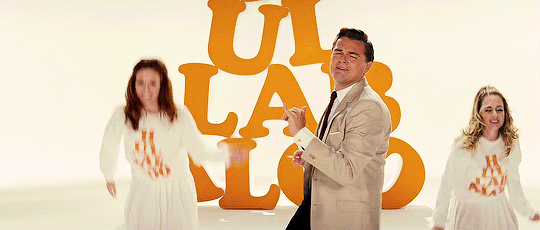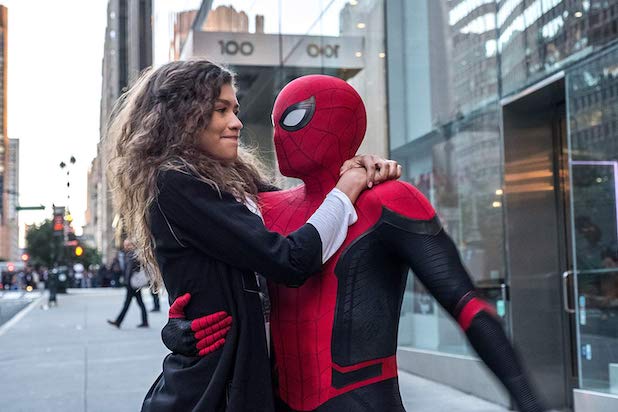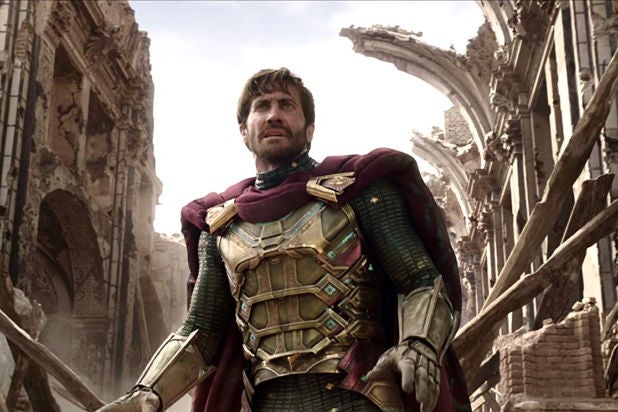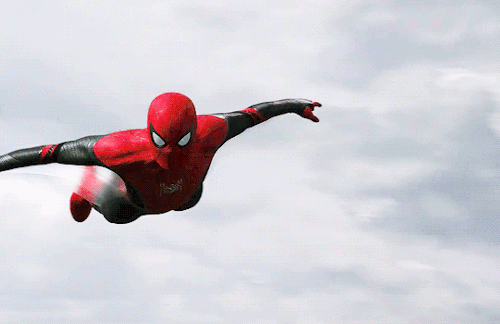If there is one major
filmmaker who has influenced a whole new age of Cinema, it’s Quentin Tarantino.
Since the early 90s, Tarantino has created many films that are ambitious,
violent and not afraid to go outside the realm of traditional filmmaking techniques.
Many filmmakers strive to be like Tarantino and due to his icon status as a director;
he still manages to create memorable films. His newest film, Once Upon A Time in Hollywood, is
another addition to his ever growing line-up of Stylized and Out there films.
It feels a bit clunky and not as ambitious as his other works but was a film
clearly made with a lot of fun and passion behind it.
Unconventional
yet Not As Ambitious
Once
Upon A Time in Hollywood centers around a Popular
Television Actor named Rick Dalton and his stuntman Cliff Booth. Dalton wants
to further his career by being in more movies so we see a showcase of his life
as a Film actor alongside Booth continuing with his own life. The film is not
so much a straight forward story with major conflicts that persists throughout
the film as it is more of a series of streamlined events. It’s a witness of
events unravel between these characters which is something that isn’t uncommon
for a filmmaker like Tarantino to do. Tarantino has made many films that betray
the traditional storytelling conventions of film by telling stories out of
order or making it more character focuses. Once
Upon A Time in Hollywood is similar here as we see the characters encounter
situations but they are not really correlated with one another. It is a film
that goes by through sequences of events which other movies have done, however,
Tarantino has this film not flow as well as his others. Mainly because the film
likes to meander a lot, focusing on situations, characters and jokes that don’t
necessarily go anyway. This is a very self-indulgent film focusing on a lot of
what Tarantino loves to have in movies more so for the sake of it. That is not
to say however that it wasn’t Tarantino’s intention or that he still manages to
showcase his talent as a filmmaker here. The film he made here wasn’t quite as
much to tell a fully cohesive story nor was it to say something deep and
profound but more so to celebrate Hollywood in the late 60s. Evidently it
succeeds in that as it a very entertaining romp through 60s culture, with a lot
of great in-jokes and references to that era. All of this is done through
Tarantino’s captivating writing style as conversations are very engaging to
listen to and the performances succeed with that. Now that still does not make
up for the shortcomings in terms of flowing narratively, as it still feels a
bit empty in some parts Even though the film is already long enough, there definitely
were elements that felt like it could have been fleshed out more than it was.
That being said, it is far from a bad movie as many of these elements mentioned
earlier and even later on prove that Tarantino does have a love for his craft
in filmmaking even if the skill isn’t 100% there.
Killer
Cast of Fantastic Actors
One of the main things
that can easily elevate a Tarantino movie is how well he can direct and work
with so many talented actors. Whether it’s Uma Thurman in Pulp Fiction, Christoph Waltz in Inglourious Basterds or basically Samuel L. Jackson in any of his
films, Tarantino films are known for having powerhouse performances and this
film is no exception. Rick Dalton and Cliff Booth are very engaging characters
in their own right, but to have them be played by iconic actors Leonardo
DiCaprio and Brad Pitt, make them all the more engaging. The performances given
by these actors make these characters as memorable as they go all in on nearly
every single type of moment in this film, whether dramatic, violent or funny.
Even smaller moments where they’re hanging out and just watching an old TV Show
is engaging due to the chemistry between Pitt and DiCaprio in this film. As for
the rest of the cast, while there are plenty of well-known actors in this film,
they don’t quite have as much impact as DiCaprio and Pitt. This isn’t due to
them as all of them give it their all, but more so in the fact that the film
doesn’t focus a whole lot of time on anyone else. It is very common for a
Tarantino film to focus on other characters besides the main cast for just one
scene but they can still hold their own as memorable scenes. It is no exception
here either with small memorable moments with Al Pacino, the late Luke Perry
and even a very hilarious moment with Mike Moh playing as martial arts icon
Bruce Lee. The one major downside with the cast is having Margot Robbie playing
as actress Sharon Tate. Robbie looks the part and definitely gives it her all
in the film, but unfortunately the film doesn’t give her much to do and yet
there are numerous moments where she is the main focus. Her moments in the film
feel like filler which is a shame given that her character does play a role in
one of the main true situations this film is based upon. It could be a contrast
to what actually happens to Sharon Tate in real life as the film has her fate
much better in this fictional account than what actually happen. Yet, it still
feels like her character had more to be desired given the role itself and
Margot Robbie being absolutely perfect for the role. Regardless though,
Tarantino still has a knack for working with talented stars with this film as
part of his great craftsmanship when making films.
An
Aesthetically Authentic Journey through Time
For as much Tarantino
is great with actors, there’s also no denying how the man wants to keep classic
filmmaking alive. Once Upon A Time in
Hollywood is a gorgeously crafted film having a very filmic aesthetic
looking very much something out of the 1960s. The cinematography sets and costume
design really makes you feel like you’re in a different time period experience
the situations these characters have to go through. Not to say that it is
always well crafted as sometimes the editing isn’t as tight as we’re used to
from the director. Some scenes may go on too long, abruptly cut short or even
just have some odd cuts in between, which seem a bit out of character for
Quentin. Granted, the film has been stated to have a longer cut in the past, so
an extended version of the film could be somewhat beneficial to fixing those
weird edits. Not only that but there is a lot of Tarantino clichés appearing
throughout the film, including tons of license songs, some heavy violence and
some very gratuitous shots of women’s feet. This adds to Tarantino making this
film a lot more self-indulgent than usually, which is saying something given
his previous works. Not to say that Tarantino can’t have these elements in his
film, especially when its one he’s having a lot more fun with, but it could
come across as more mature if he toned some of those elements down. It is a
shame that it can be bogged down by some more gratuitous moments because the
film is masterful on a technical level, especially for the kind of film
Tarantino makes. However, it still doesn’t completely kill the movie, so if
you’re able to handle some of the more indulgent parts of Tarantino’s works
more than others, then it can still be seen as a fun ride through old
Hollywood.
An
Indulgent yet Enjoyable Ride with Tarantino
Once
Upon A Time in Hollywood is far from Tarantino’s Best work.
It isn’t even close to being on the level of quality as his previous films from
the past decade were. Yet it is also clear that Tarantino wasn’t attempting for
this movie to be the grand epic film of his career. Tarantino made a film that
is at the end of the day, incredibly entertaining. For all of the moments he
truly makes this film self-indulgent for his career, it is also very amusing to
see this ride happen with Tarantino. This certainly isn’t the movie to be shown
as an introduction to Tarantino’s work due to its faults. However if you’re
looking for a film that’s entertaining but also has a lot of craftsmanship to
its work or even just a Tarantino fan, this is still a must see movie. It is
not ambitious as other films from a director like Tarantino but certainly has
more craft than the average standard film that comes out every year.

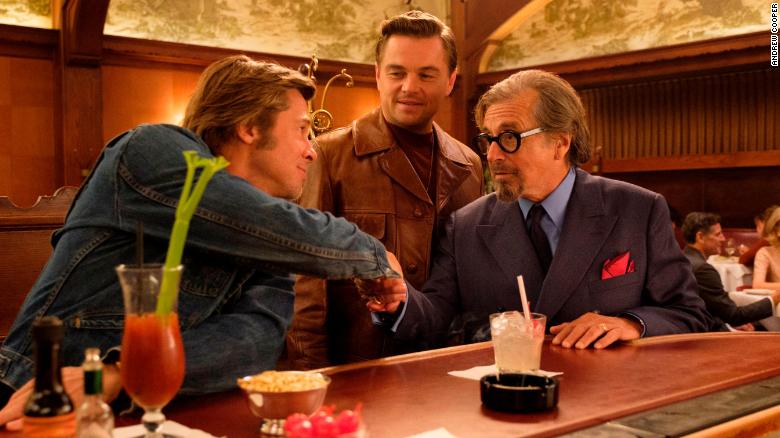
:no_upscale()/cdn.vox-cdn.com/uploads/chorus_asset/file/16204308/940ccd26_ec1a_4d4f_a3d7_8c4a7a6d179e_VPCTRAILER_ONCE_UPON_A_TIME_IN_HOLLYWOOD_DESK_THUMB.jpg)

